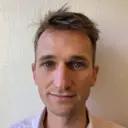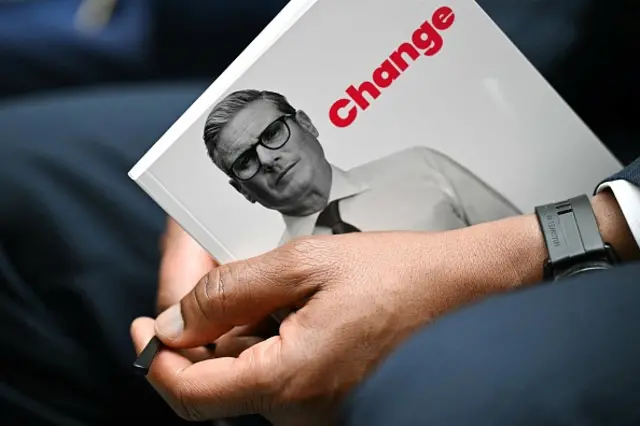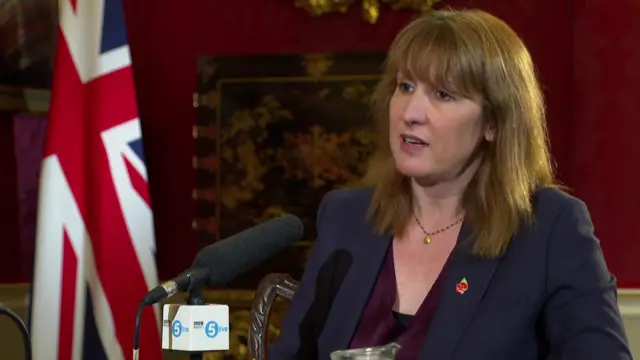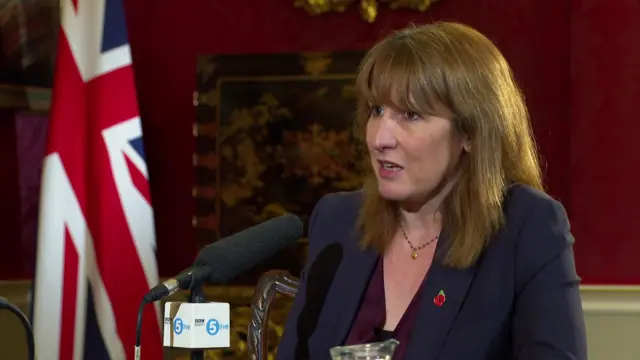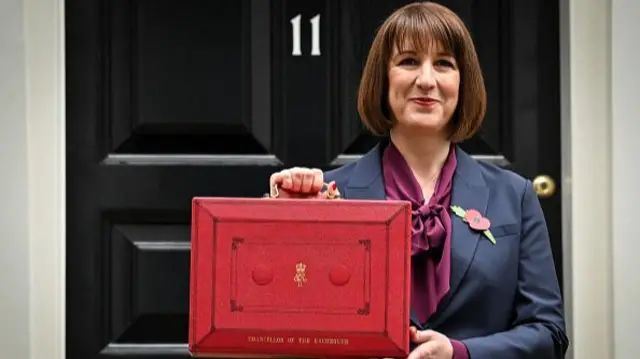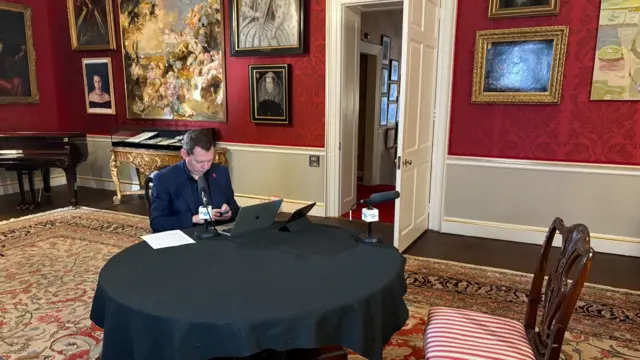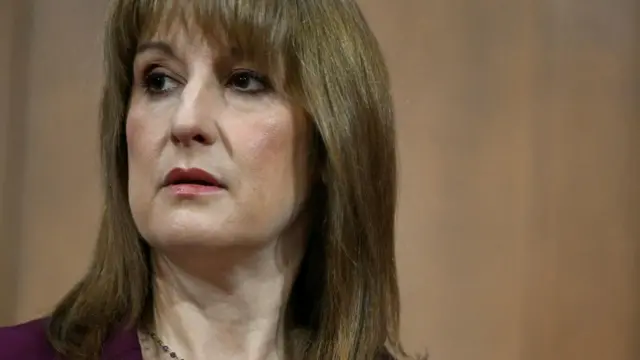Sticking to Labour's manifesto pledges would require 'deep cuts', says chancellorpublished at 16:31 GMT 10 November
 Cachella Smith
Cachella Smith
Live reporter
Just over two weeks out from the autumn Budget, the chancellor has spoken with BBC Radio 5 Live giving the latest government position on what we might expect on 26 November.
Speaking on a day when the BBC itself is coming under criticism, Reeves first underlined that she has confidence in the organisation, while stressing that lessons do need to be learnt.
Turning then to her own role, she told the BBC the upcoming Budget will focus on the cost of living and getting the national debt and waiting lists down.
She pointed to challenging circumstances, citing specifically global trade disruption, as she repeated she will be looking at both taxes and spending. She did not however directly answer questions on whether taxes would be going up.
The final points of the Budget have not yet been finalised, she explained, but drew uncertainty over whether she would stick to Labour's manifesto commitments, saying that to abide by them would require "things like deep cuts in capital spending".
We will be closing our live coverage shortly - for a reminder of the latest Budget details you can head to our explainer.

